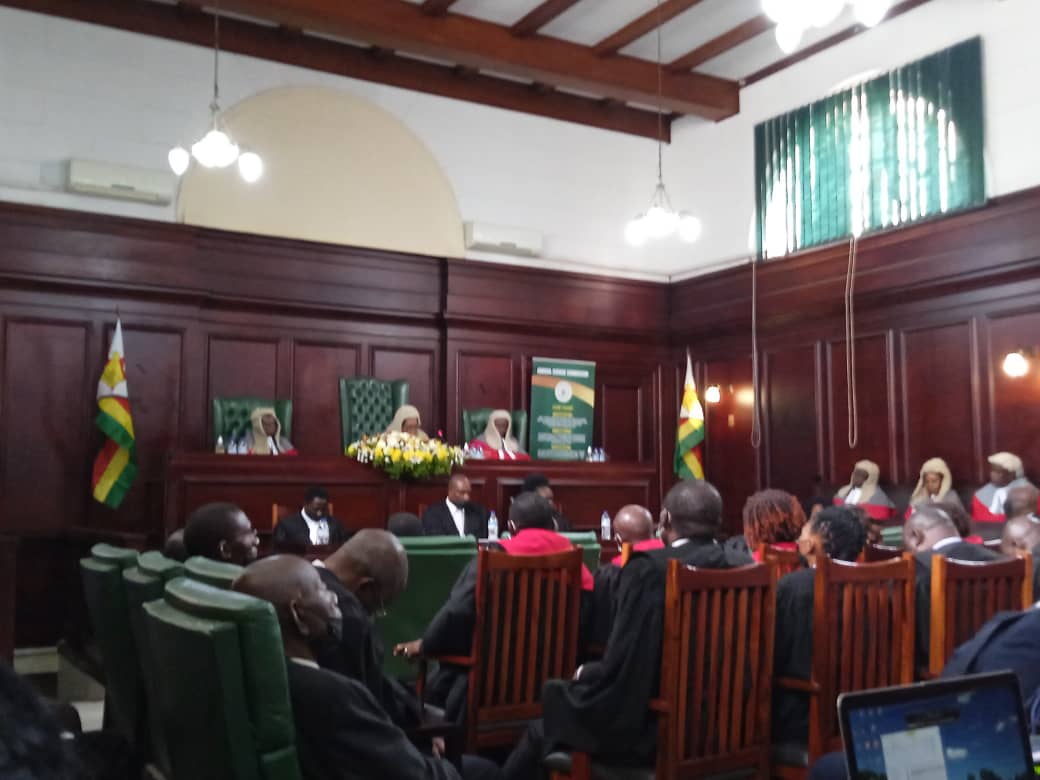Deputy Chief Justice, Elizabeth Gwaunza, has dismissed the ‘catch and release’ syndrome ascribed to the country’s justice delivery system saying it lacks both legal and factual basis.
A number of senior government officials have in the past been arraigned before courts on corruption allegations only to be later released and acquitted, leaving members of the public questioning the fairness of the law.
Speaking during the official opening of the 2023 legal year in Bulawayo Monday, Gwaunza said it was rather uncalled for to suggest the country’s courts were involved in that.
“The so-called “catch and release” narrative ascribed to the courts has no legal and factual basis,” said Gwaunza.
“The cynical suggestion has been that courts are involved in a conspiracy arrangement with the other state agents in the criminal justice system to release persons accused of corruption in what is called a “catch and release” phenomenon.”
She explained: “When a person has been arrested, he or she is entitled to bail as of right unless there are compelling reasons not to grant bail. When a person accused of a crime is released on bail, this is a legal and constitutionally provided for process, not to be derogatively dismissed as a “catch and release” procedure. When a trial takes place, it is also a constitutional imperative that the suspect goes through a fair trial.” Whether the person is convicted or acquitted, Gwaunza said, that constitutes justice at work.
“A person who has gone through the criminal proceedings and is released on acquittal cannot be dismissed as a “catch and release” case,” she said.
“The Constitution guarantees a fair criminal justice system. It does not guarantee a criminal justice system in which everyone arrested must be convicted even where there is no evidence. There cannot be public confidence in such a system.”
She revealed that there are currently 147 corruption-related cases pending in the courts.
“Of these cases, 89 cases are either in progress or have been finalised, with 16 cases having trial dates, whilst for 52 cases trials have commenced. 21 cases have already been finalized,” she said.
The Deputy Chief Justice said it is not part of the duties of officers in the Judiciary to satisfy personal needs of court users.
“Where one is aggrieved by a decision made by the court it is important to rely on the available legal processes for remedy,” she said.
“It is the parties who bring their disputes to the courts. The courts apply the law and ultimately reach a decision in favour of the one who has proved their case according to the law. Publicly insulting the courts and judicial officers because one has lost their case will not help to have the court order set aside. Such conduct has the effect of undermining public confidence in the Judiciary.”
She added: “The Judiciary is bound by the law to resist the often insidious pressure to make decisions according to public clamour, contrary to the dictates of the facts and the applicable law.”
In 2017, the newly elected President Mnangagwa vowed that “there should be no sacred cows” and that the “government will have zero tolerance towards corruption” but years later no substantial action has been taken against perpetrators.

